Aphasia is a speech disorder. Some people mistakenly refer to it as a speech inability. But it is much more. Its primary cause is damage to the brain structures responsible for speech generation (frontal lobe) and its understanding (temporal lobe).
Global aphasia![]() is a severe type of aphasia. It affects language processing, making it challenging for the person to communicate and understand others. However, other cognitive not related to speech capacities may remain unaffected. This condition can occur after a stroke or brain injury. There is a chance of improving over time, but there is also a risk of long-lasting damage.
is a severe type of aphasia. It affects language processing, making it challenging for the person to communicate and understand others. However, other cognitive not related to speech capacities may remain unaffected. This condition can occur after a stroke or brain injury. There is a chance of improving over time, but there is also a risk of long-lasting damage.
Broca aphasia![]() is a type of partial speech loss. It affects speaking fluency. Individuals have problems communicating and can only say a few words at a time. They can understand other people's speeches but may struggle with writing.
is a type of partial speech loss. It affects speaking fluency. Individuals have problems communicating and can only say a few words at a time. They can understand other people's speeches but may struggle with writing.
Mixed non-fluent aphasia![]() involves narrow and challenging phrasing, like in Broca's aphasia, but with more limited comprehension capabilities. Patients may have fundamental reading and writing skills.
involves narrow and challenging phrasing, like in Broca's aphasia, but with more limited comprehension capabilities. Patients may have fundamental reading and writing skills.
Wernicke aphasia![]() is also known as fluent or sensory aphasia. People with this disorder have problems understanding articulated words but can still speak. Individuals with this condition may have difficulty with reading and writing and experience incoherent speech, often using irrelevant or nonsensical terms.
is also known as fluent or sensory aphasia. People with this disorder have problems understanding articulated words but can still speak. Individuals with this condition may have difficulty with reading and writing and experience incoherent speech, often using irrelevant or nonsensical terms.
Anomic aphasia![]() makes it hard to find the right words, leading to communication problems.
makes it hard to find the right words, leading to communication problems.
Individuals with PPA![]() gradually lose their ability to speak as a result of neurodegenerative conditions affecting the brain. It is typically accompanied by symptoms of dementia and memory loss.
gradually lose their ability to speak as a result of neurodegenerative conditions affecting the brain. It is typically accompanied by symptoms of dementia and memory loss.
Aphasia develops in humans when there is some damage to structures belonging to the central nervous system. Here, however, it is necessary to emphasize the key aspect. This problem has its roots in defects affecting the brain itself. In people with aphasia a speech apparatus, i.e., tongue and larynx elements work correctly.
Previously, it was believed that aphasia could only be a result of damage to distinct brain regions. These are the so-called speech centers, which are:
It turns out that damage to, e.g., nerve fibers that link these areas with other brain parts can also result in speech disorders.
The condition that usually causes aphasia is stroke![]() . However, it can occur as a result of other conditions, such as:
. However, it can occur as a result of other conditions, such as:
These are the most standard causes of aphasia![]() . This problem, although much less frequent, may also result from epilepsy (then the aphasia is usually temporary and lasts for a short time).
. This problem, although much less frequent, may also result from epilepsy (then the aphasia is usually temporary and lasts for a short time).
Aphasia is usually easy to diagnose – speech disorders are usually clearly visible to the patient's environment and often also to the patient himself. During the problem, there may be signs![]() like:
like:
However, even if the patient only utters snippets of words, they usually have “in his head” what they would like to say – aphasia is not due to memory problems or intellectual disabilities but is simply a speech disorder.
Aphasia is a speech disorder that can only be diagnosed in patients whose speech has already developed and lost due to an incident. It cannot happen in a child who is still developing speech.
Among speech therapy diagnoses, there is developmental aphasia![]() (dysphagia) in children. The reason for this may be birth injuries, encephalitis, or other injuries that occurred before speech development but are not the result of hearing impairment or mental disability.
(dysphagia) in children. The reason for this may be birth injuries, encephalitis, or other injuries that occurred before speech development but are not the result of hearing impairment or mental disability.
Developmental aphasia is manifested by:
Another type of aphasia diagnosed in children is acquired aphasia![]() . We are dealing with it when the child's speech develops properly until the moment of brain damage, and then symptoms of speech formation and development disorders appear. Acquired aphasia is diagnosed at the earliest in the second year of life because during this period the child begins to formulate his utterances, as well as to understand the words of others.
. We are dealing with it when the child's speech develops properly until the moment of brain damage, and then symptoms of speech formation and development disorders appear. Acquired aphasia is diagnosed at the earliest in the second year of life because during this period the child begins to formulate his utterances, as well as to understand the words of others.
The most common causes of acquired aphasia in kids include:
Unlike adult aphasia, childhood aphasia can occur with similar frequency after both left and right hemisphere damage. Aphasia in adults after damage to the right hemisphere is very rare.
Unless there is damage to both hemispheres, the symptoms of childhood aphasia disappear much faster than in adults. The younger the child, the sooner they can return to fluent speech.

Every kid grows at their own pace. When should you be concerned? There are some situations, e.g., if a kid's speech does not improve or if they have trouble learning and using new phrases. When this problem occurs, consult with a pediatric speech therapist so the specialist can determine the reason for this issue.
The most typical speech conditions in youngsters include:
The occurrence of aphasia – particularly sudden – should always be consulted with a specialist.
Diagnosing aphasia![]() involves a combination of techniques. The doctor starts with questioning about your medical history and physical examination. Then there may be a need for diagnostic imaging and laboratory testing. Depending on the circumstances, the specialist can propose multiple tests to eliminate other potential disorders or causes that exhibit comparable symptoms to those associated with aphasia.
involves a combination of techniques. The doctor starts with questioning about your medical history and physical examination. Then there may be a need for diagnostic imaging and laboratory testing. Depending on the circumstances, the specialist can propose multiple tests to eliminate other potential disorders or causes that exhibit comparable symptoms to those associated with aphasia.
In the event of aphasia, the patient first undergoes a neurological examination – other abnormalities detected during the examination (such as, for example, sensory disturbances or paresis) may suggest what exactly the patient suffered from or which part of his brain was damaged.
Later, imaging tests of the head are usually ordered, such as computed tomography or magnetic resonance imaging – these make it possible to identify, for example, foci of ischemia within the brain or the presence of an intracranial tumor in the patient.
To confirm if someone has aphasia and determine the best language treatment, a speech-language pathologist can conduct a thorough language assessment. This assessment assesses if the person can:
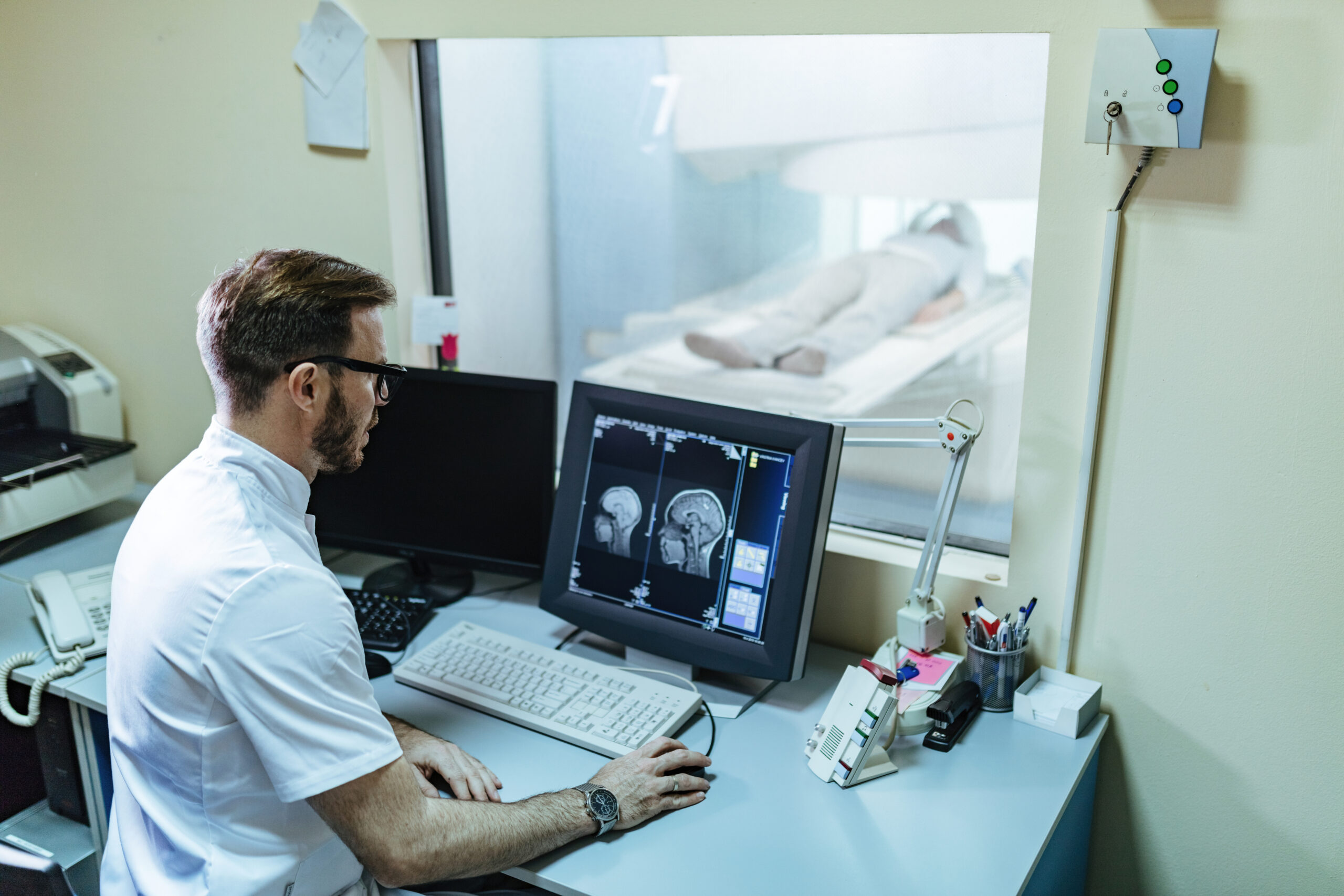
Aphasia itself is not a condition but a manifestation. Treatment![]() must concentrate on its cause. In the case of people who have experienced a stroke, along with the general improvement of their condition, speech disorders may also subside.
must concentrate on its cause. In the case of people who have experienced a stroke, along with the general improvement of their condition, speech disorders may also subside.
However, the improvement in this case may be of varying degrees – in some patients, the aphasia disappears entirely, while in others the problem persists all the time. Speech training is significant for many patients, as it is often possible to reduce the degree of speech disorders that they have – with the participation of a speech therapist.
The aphasia treatment in people who developed it in connection with a brain tumor is different. In their case, effective therapy, based on, e.g., removal of the entire lesion, sometimes turns out to be a sufficient method of treatment. The tumor may compress the speech centers in the brain, and its resection, eliminating this compression, leads to the aphasia disappearing.
Just as aphasia impacts the quality of life, it does not affect the survival of patients. However, the exact prognosis of individuals who have aphasia cannot be determined – it all depends on what caused this issue.
The general prediction is better for those with easily treated neuro infections and worse for the ones with aphasia due to a very malignant brain tumor.
Aphasia causes significant life changes. Perhaps you feel frustrated, nervous, impatient, sad or scared. It is challenging for you to convey what you feel and think. This reaction is natural. Living with aphasia is not easy. Thus, it is worth doing everything possible to improve its quality.
Attend a speech therapist for speech rehabilitation therapy to improve your communication skills.
Use psychological support. Psychotherapy will strengthen your emotional resources so that you can face new challenges.
Do not avoid physiotherapy classes. Thanks to them you will be able to improve your motor skills.
Involve your loved ones. Their support can help you to adjust to the new circumstances.
Be patient with yourself. Healing is a slow process. Remember that in the vast majority of cases, progress can be seen even many years after developing aphasia.
Develop your way of communicating so that other people can understand what you want to say. Sometimes, for example, articulating slowly or repeating your words helps. Use gestures, drawings, or write what you want to express.
Try to do some calming activities. It could be painting, singing, gardening, or cooking.
Patients with aphasia may react in various ways: anger, sadness, despair, fear, frustration, or shame. It's natural for them to feel like a different person than they used to be. After all, their lifestyle is radically changing. They may not understand what has happened to them or how they will cope with the changes they face.
In turn, people close to the patient may not know how to react and what to do. In many cases, they make typical mistakes: they ignore the patient, talk to them like a child, and speak for them. In short, they do what they think is most reasonable to support but they don't recognize that it can be frustrating for the patient.

How can you help a loved one with aphasia?![]() Treat them with respect and as an adult, not a kid. Involve them in everyday discussions and decision-making. Encourage as much autonomy as possible. Give the individual with aphasia time to answer, help them express themselves, and talk naturally about what they feel. Give support when they need it and help them seek professional help.
Treat them with respect and as an adult, not a kid. Involve them in everyday discussions and decision-making. Encourage as much autonomy as possible. Give the individual with aphasia time to answer, help them express themselves, and talk naturally about what they feel. Give support when they need it and help them seek professional help.
Knowing that there is someone you can always count on is as important as speech therapy and psychological therapy. Working on aphasia is a long-term process that requires patience.
Table of Contents
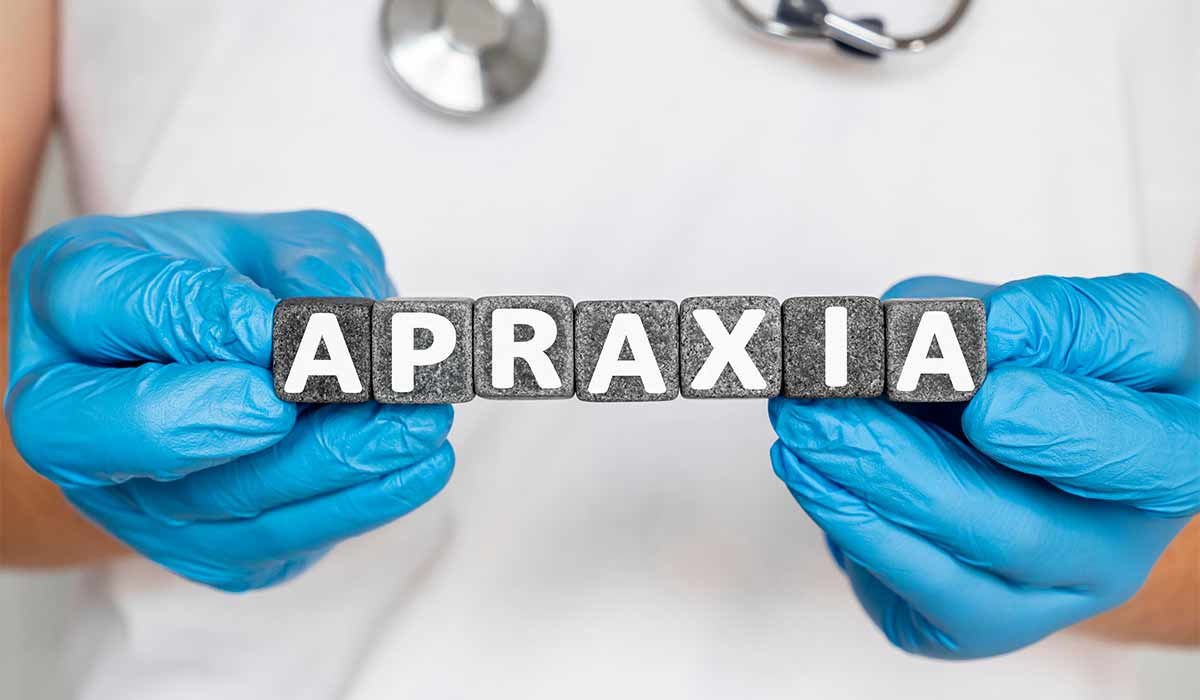
Apraxia is a neurological disorder. It is the inability to perform known movements or activities on command. How can it… read more »

Dyspraxia is a perceptual and motor dysfunction manifested by developmental coordination disorders. How does it manifest itself? What is the… read more »
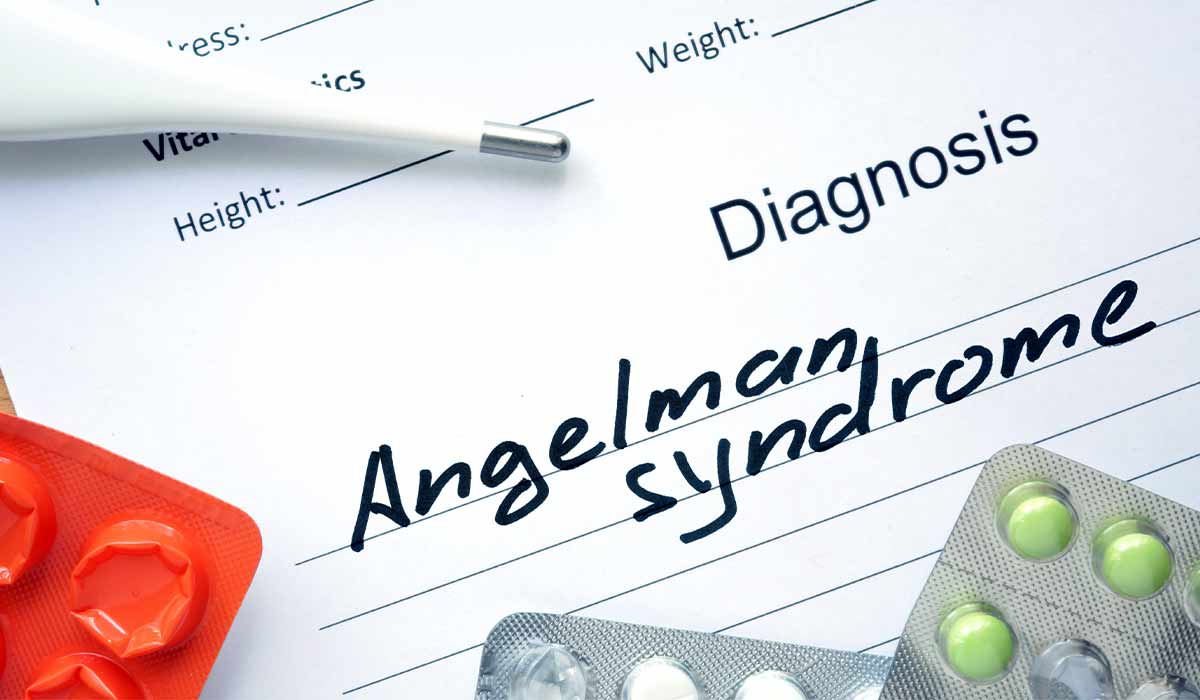
Angelman syndrome is a neurogenetic disorder that is often misdiagnosed. Find out what the characteristic symptoms are and learn about… read more »
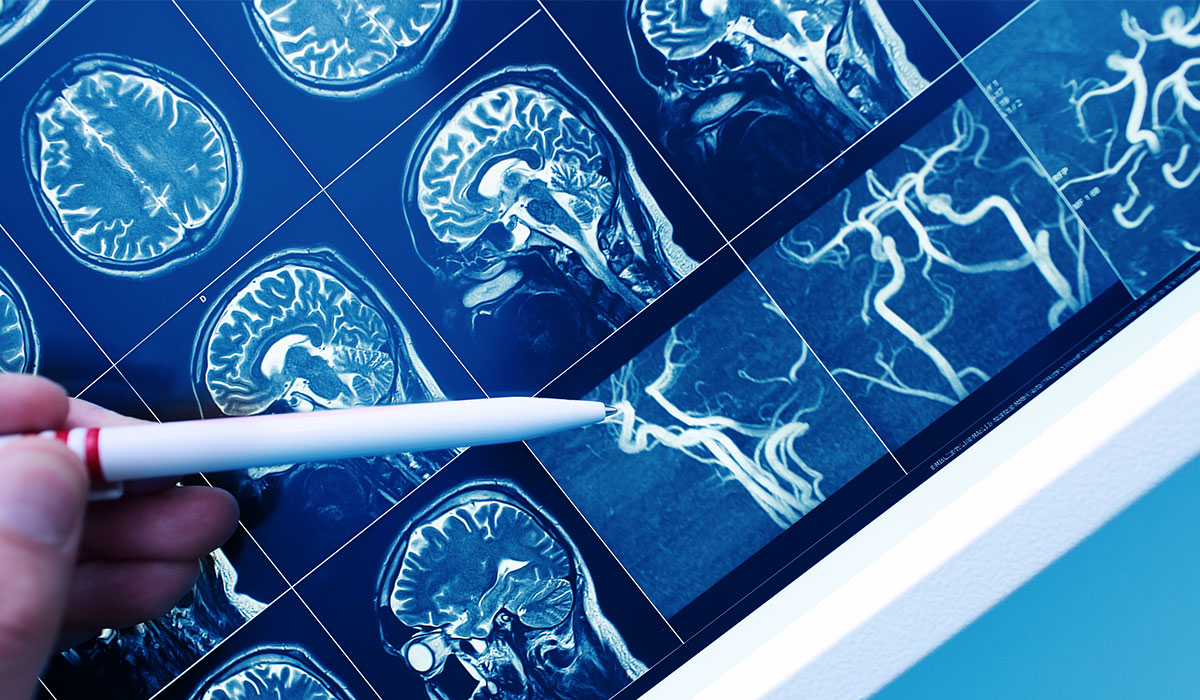
Vascular dementia can occur after a stroke or other incident. Learn the most important information to recognize early symptoms and… read more »

Ataxia is a motor coordination issue when individuals struggle with exact movements, holding the correct posture, or having standard walking… read more »
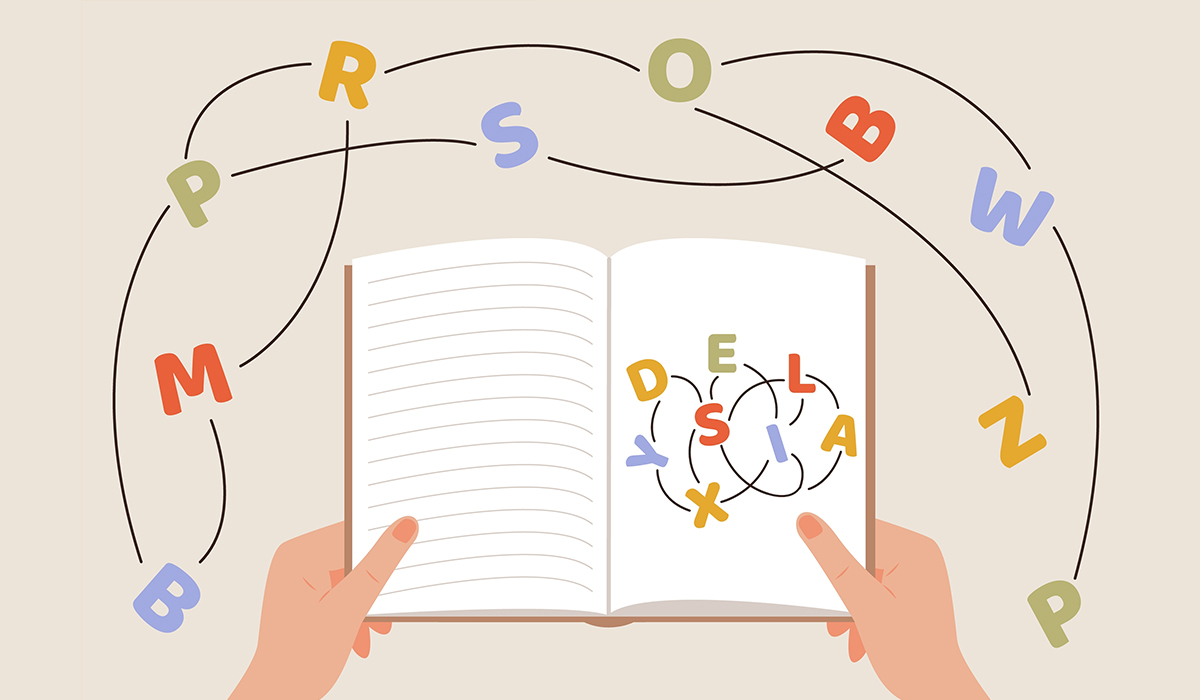
Dyslexia is a disorder that manifests itself in difficulties in learning to read and write. Why does it occur? What… read more »
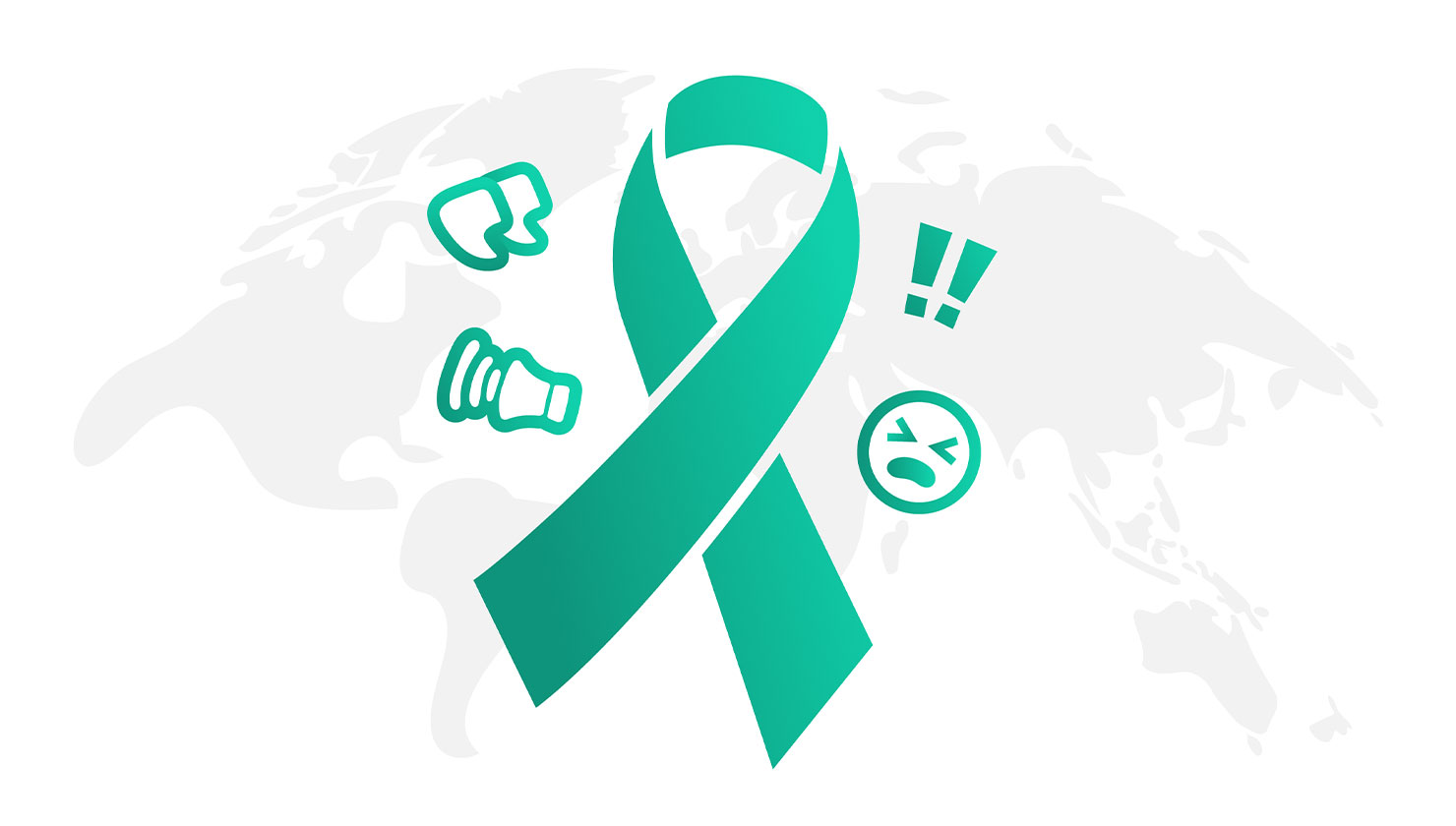
Tourette syndrome is characterized by tics. What are its causes? What to do if we observe disturbing symptoms? read more »

Autism Spectrum Disorders (ASD) are a group of developmental disabilities. Check out the symptoms and diagnosis. Learn, how to help… read more »
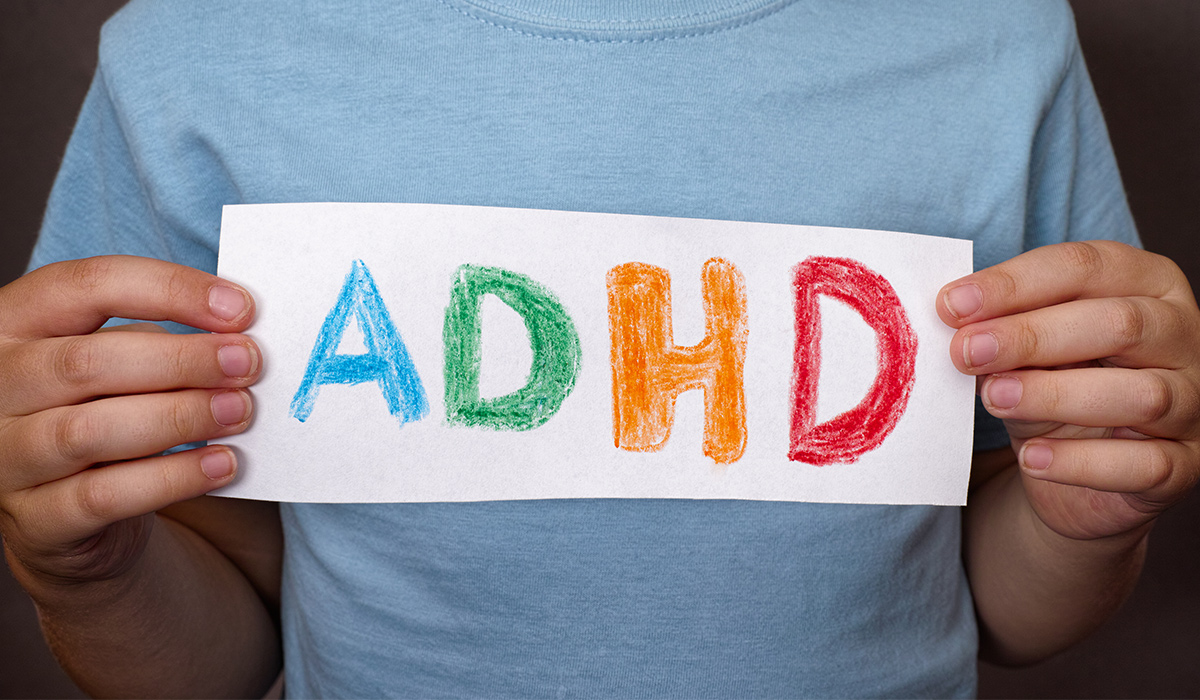
ADHD, or attention deficit hyperactivity disorder, is the general name for behavioral disorders. It is most common in children and… read more »